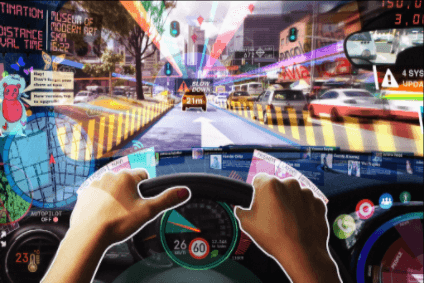Ever had a conversation like this with a car?
“Turn the stereo on.”
“Please say again.”
“Just turn the ******* radio on, will ya?”
“Please choose from the following list of commands.”
“I give up…. Where’s the switch?”
It’d be fair to say, in my experience, anyway, voice commands have some way to go in cars though I’m learning to get on with Siri on my Apple work phone and home iPad. But wouldn’t it be nice to have a car that responded in context and helped out instead of blindly insisting on you using the exact phrases it’s programmed to understand?
It may be closer than you think.
This week, in Toronto, courtesy of a company called iNAGO, I heard a simulated chat that, very soon, could be coming to a car, a laptop, an app, near you.
“Find me a restaurant.”
“In Detroit?” [Where the car supposedly was.]
“Yes.”
“What type of restaurant are you looking for?” [A range of choices is displayed on a screen AND read out to minimise driver distraction.]
“What budget would you like?” [Again, a range of choices is displayed on a screen AND read out to minimise driver distraction.]
“Cheap.”
“What ambience?” [This time the choices are like family, date, celebration and so on.]
“Family.” [A list is generated, based on distance from the car, and are displayed and read out.]
“Let’s try number two.” [Details are displayed and read out, an offer to place a booking call and provide directions is made.]
Better yet – you can gabble out as much, or as little, detail as you want. “Find me a cheap Thai family restaurant in Detroit” and the system will only ask for as much more information as it needs to satisfy your requirements.
INAGO stands for Intelligent Agents Online and the software platform that creates the conversation is called NETpeople. It’s integrated with local content and service providers to, as company founder Ron DiCarlantonio puts it, to go beyond one-time, Google or Siri-style searches to a conversational search so users get what they want.
DiCarlantonio started in Japan, creating a virtual fish tank where fish lived, grew, thrived and died on your computer screen and gradually evolved the skills used to create the netpeople platform used initially to let people talk more conversationally to computers. He then brought the business back to his native Canada but retains strong connections with Japan where the cloud based platform is used to offer a choice of Google or NETpeople searches in Clarion navigators or talk to NEC Ultrabook laptops. It’s also in, or going in, some Toyota and Mitsubishi Motors domestic market vehicles. Clarion, Fujitsu Ten and Brother are among other manufacturers who have used the digital assistants in mobile phones (one of their demos sounded like they’d used my daughter’s voice to help/boss the user around), desktops and even robots. The system is also ideal for home automation controlling media, lighting, temperature, security, data and internet connected services.
This is the first year in which the product has been marketed in North America and, while acknowledging it can take three to five years to integrate into a car (using it in a phone in the car can shorten introduction time), DiCarlantonio sees all sorts of other uses including functions that would generate revenue for OEMs (“I see a service is due soon, would you like me to schedule a dealer appointment for next Tuesday?”) or even owner’s manuals. (“How do I use the seat memory function?”). Linking to a mobile phone, a PHEV owner, comfortably esconced on the couch, might get a quick call from the car’s digital assistant. (“You haven’t plugged the car in for a charge tonight.”)
DiCarlantonio said Ontario was an ideal location to base the company due to the R&D support available from the universities – he currently has three projects under way with the institutions. And highly skilled software engineers cost 30-40% less to hire than if he was based in California’s Silicon Valley.
“Skills are high at less cost, people are multi-lingual and multicultural [Toronto is known for its diversity] and there are good government incentive programmes,” DiCarlantonio told just-auto. “Ecosystem is also good – we’re close to the US and there are strong ties to Asia.”







